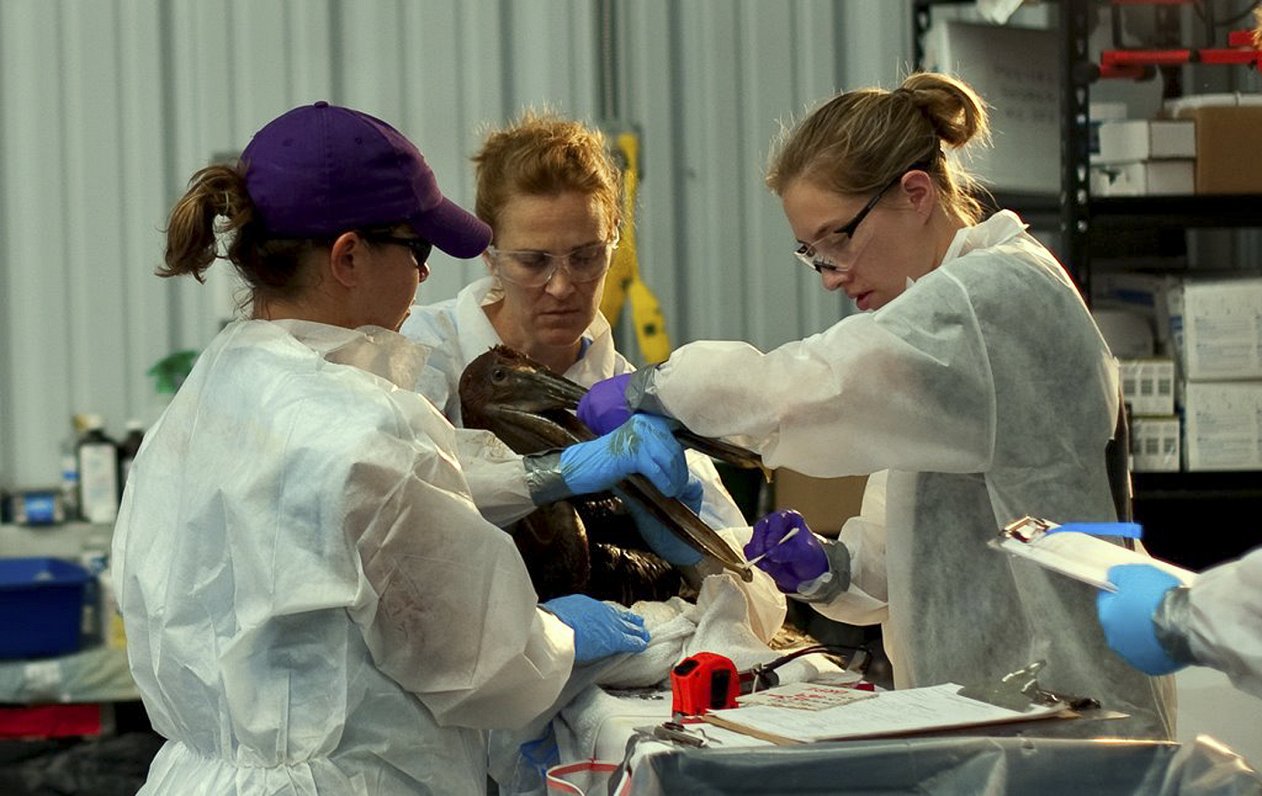Until now accidents have been very small, but intense shipping traffic in the Baltic Sea presents future risks should an accidental spill occur. According to WWF specialist Magda Jentgen, one project would assist Naval Forces and state agency rapid response, and another would draft a contingency plan for aiding animals. Both would require the assistance of volunteers.
“It's essential to engage volunteers in coastal oil cleanup. Moreover, cleaning the oil off of birds is a time-consuming process. Volunteers need to be instructed and need to be capable of assisting veterinarians in a crisis situation,” said Jentgen. Since March 50 volunteers have registered, but she said a larger accident would require several shifts of people.
“At this time we’re compiling a list of volunteers, and then we plan to secure financing for training. These people will have the know-how to capture birds and how to clean wounded birds,” said Jentgen.
One such accident occurred near Estonia in 2006, injuring ten to fifteen thousand birds. Only sixty were saved and returned to their natural habitat. Rotterdam has experienced an even bigger spill that required more than a year to clean up.
Ilze Jēce is one of the volunteers with years of experience in the non governmental sector. “We don’t have the kind of civil society volunteering traditions that the US and other Western countries have. There people are accustomed to university programs with volunteering requirements and civil society work as a hobby in their free time. One-time help in a crisis is easier than planning for long-term involvement. That’s more difficult,” she explained.
“I think people need more opportunities for this kind of work as we all have an innate desire to help and do good,” said Jēce.
Volunteer Māra Utāne, an engineering student, is writing her Masters degree on the environmental impact of oil spills in Latvia. “The role of volunteers is a big support cushion for institutions that lack proper capacity for helping animals. Their main task is to help people and reduce the impact of pollution. But the next level is volunteer support and helping animals,” said Utāne.
Anyone 18 years and older can become an oil spill emergency volunteer. Training will be conducted by specialists from Finland this year. Registration is available through the WWF local affiliate “Pasaules Dabas fonds” website.





























